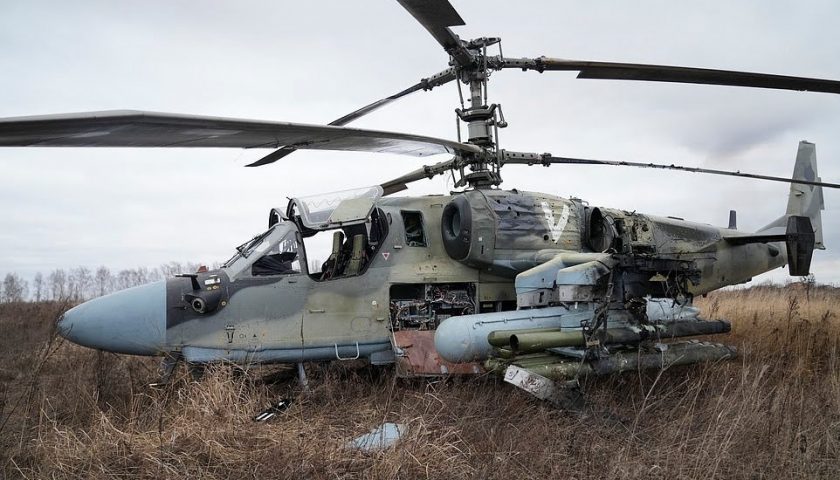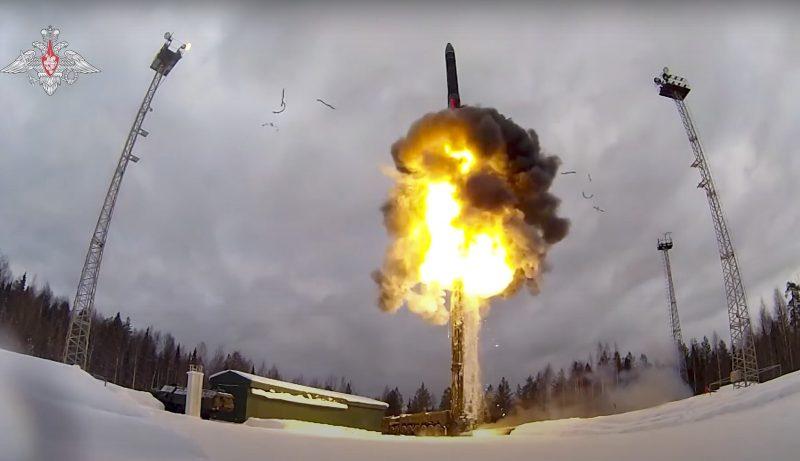Just 3 weeks ago, very few in the West believed that Russia was indeed going to wage a global war of aggression on Ukraine. For many, the deployment of Russian force around Ukraine was intended to make President Zelensky bend over his NATO membership and the status of the breakaway republics of Donbass. For the best informed, such as the General Staff of the French Armies, and as we discussed in an article of February 23, the military and political risks associated with such an offensive did not outweigh the potential benefits, so that such a decision appeared irrational and therefore unlikely. Since February 24 and the start of the Russian offensive, the geopolitical and security situation in Europe has changed radically, overturning many certainties and leading to sometimes radical changes in posture, such as when Germany announced a spectacular increase in its own defense effort.
Beyond these key strategic implications, this conflict is also rich in teaching, as for the new nature of the modern war, and highlights certain aspects hitherto perceived differently or in a secondary way by the Western armies and those which determine their destiny. In this article, we will study several of these lessons that touch on the heart of the capabilities, formats and schedule of European armies, and which must now be taken into account in order to respond to the operational reality observed on the battlefield.
1- The reassessment of the Russian conventional threat
The greatest surprise of this beginning of the conflict is undeniably linked to the many failures affecting the Russian armies. It is true that the Ukrainian resistance surprised, but the lack of effectiveness of the Russian units will have a great influence in Europe. Indeed, even if these shortcomings do not certainly jeopardize the success of the current offensive, they have led to higher losses observed in two weeks of engagement than those recorded during a year of war in Afghanistan during the Soviet intervention from 1979 to 1989. Moreover, the conflict being still far from a conclusion, it is likely that these Russian losses will continue to accumulate and severely deteriorate the military tool and the manpower of the armies forces, severely handicapping Russian conventional operational capabilities for many years.

However, in recent years, a large majority of defense decisions taken by European leaders have assumed an efficient and threatening Russian army, precisely in the conventional field, leading Europeans to approach the United States, perceived as the only ones capable of neutralizing this threat. Obviously things have changed drastically in 2 weeks. Not only do the Russian armies show less efficiency, but the whole of the Russian defense tool struggles to support a military operation against a technologically outmatched adversary, and having only a weak strategic depth.
These findings have two major consequences for planning and the European strategic calendar. Firstly, it now seems obvious that the Europeans, in the form of a coalition, are potentially capable today of containing a Russian conventional offensive, even in spite of their means eroded by 30 years of underinvestment, and this without having to rely on American protection. In addition, Europe now has a minimum of ten years to rebuild and size their own defense tool, including in certain critical technological areas, the Russian armies also having to take advantage of this time to reconstitute their forces before to be able to regain an operational capability significant enough to represent a conventional threat. Finally, the Europeans now know that they are not immune to such a conventional and/or strategic threat, including on their own territory, which explains the cascading announcements from Finland, the low, of Slovakia or even of Poland, as regards the increase in their defense effort. Anyway, now, and whatever the conclusion of the conflict in Ukraine, the Europeans and Russia will be engaged in a race for military power with a deadline around 2030.
2- the return of the strategic posture

75% of this article remains to read,
Subscribe to access it!
The Classic subscriptions provide access to
articles in their full version, and without advertising,
from 6,90 €.
Newsletter subscription
Register for the Meta-Defense Newsletter to receive the
latest fashion articles daily or weekly



[…] “Αν υπάρχει ένα κομμάτι του εξοπλισμού που δίνει πλήρη ικανοποίησος ς νικές δυνάμεις σε αυτή τη σύγκρουση, τουλάχιστον στη δημόσια σκηίιν, ε ρκικής κατασκευής ελαφρύ μαχητικό drone TB2 Bayraktar”, σημειώνει το έγκυρο γα΄λλικό ν ιτ meta-defence.fr. […]
[…] the West by multiplying demonstrations of force, exercises and declarations concerning the possible use of its nuclear capabilities. For the Kremlin, it was about preventing Europeans and Americans from […]
[…] and if the Soviet Union also had equivalent systems such as missiles like the 9M79 Toschka, the Pluto, and later the Hades, were particularly disliked by the authorities […]
[…] and if the Soviet Union also had equivalent systems such as missiles like the 9M79 Toschka, the Pluto, and later the Hades, were particularly disliked by the authorities […]